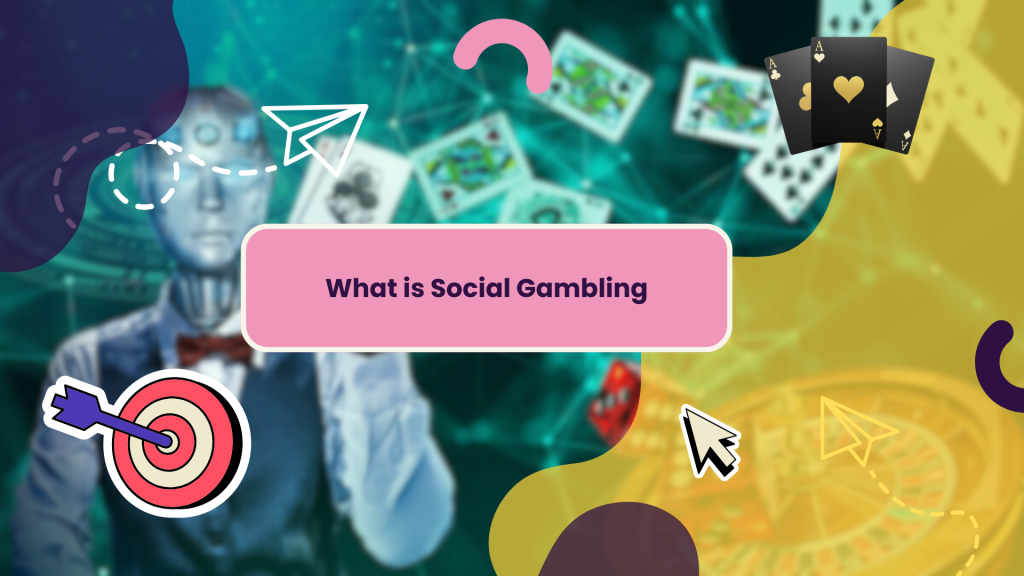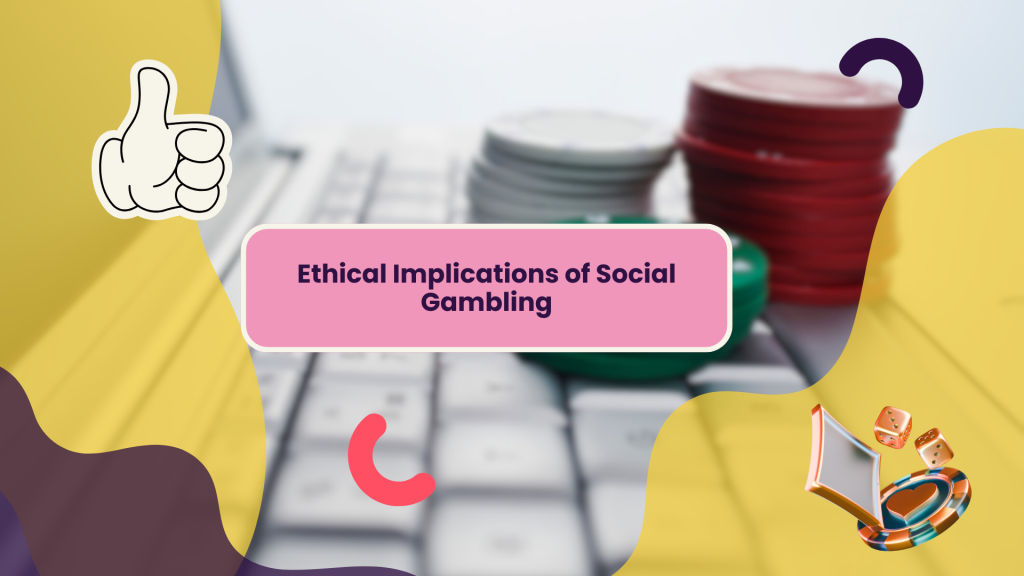Unlike traditional forms of gambling, which are based solely on chance and often involve betting real money, social gambling combines elements of interaction, skill-based games and virtual currency. This combination of social media and gambling has paved the way for new horizons in online gambling, offering players a unique and engaging experience that goes beyond simple betting.
What is Social Gambling

Social gambling refers to gaming activities that combine elements of social media and the mechanics of gambling. These games typically utilise virtual currencies where players can engage in various forms of betting without the risk of losing real money.
One of the features of such gambling is the emphasis on social interaction. Unlike traditional games where players compete with casinos, social gambling platforms encourage players to interact with each other, join communities and participate in multiplayer games. This aspect adds a new dimension to the gaming experience, enhancing the sense of camaraderie and competition between players.
The popularity of social gambling has increased dramatically in recent years due to advances in technology and changing consumer preferences. The widespread use of smartphones and the internet has made social gambling platforms easily accessible to millions of players around the world. They offer a wide range of games, including slot machines, poker, blackjack and roulette, catering to different preferences and skill levels.
One of the key drivers for the growth of social gambling is its appeal to a younger audience. Unlike traditional casinos, which can seem intimidating or inaccessible to young players, social gambling platforms offer a more relaxed and accessible experience. Using virtual currencies also removes the entry barrier for players who are hesitant to bet with real money, allowing them to enjoy the excitement without the financial risk.
Social Gambling vs. Traditional Gambling
While social gambling has some similarities to traditional forms such as casinos and online betting sites, there are a few key differences:.
- Social gambling places a strong emphasis on human interaction, allowing players to socialise with friends, join communities and participate in multiplayer games. This aspect adds a new level of excitement and engagement to the gaming experience, strengthening the sense of community among players.
- Unlike traditional gambling games that involve betting real money, social gambling games use virtual currencies that have no real value. This allows players to enjoy betting without the risk of financial loss, making them more accessible and appealing to a wider audience.
- Many social gambling entertainment platforms offer skill-based games where players can use their strategic thinking and decision-making skills to influence the outcome. This adds an element of skill and competition to the gameplay, attracting users who enjoy a challenge.
- As social gambling does not involve real money betting, it is often subject to less stringent regulations. This allows gambling platforms to innovate and experiment with new features and game mechanics, fuelling further growth and innovation in the industry.
The Future of Social Gambling
As social entertainment continues to grow in popularity, the industry is poised for further expansion and innovation in the coming years. Advances in technology such as virtual and augmented reality are likely to play a significant role in shaping the future of social gambling by offering players an immersive and interactive gaming experience.
In addition, the integration of blockchain technology and cryptocurrencies could revolutionise the operation of social gambling platforms by providing players with greater transparency, security and control over their assets. Blockchain-based platforms can also facilitate peer-to-peer betting and decentralised tournaments, further enhancing the friendly and competitive aspects of social gambling.
In addition to technological advances, the legal and regulatory framework surrounding social gambling is evolving. While some jurisdictions have embraced them as a form of entertainment and leisure, others have raised concerns about their potential impact on vulnerable individuals, such as minors. As a result, policymakers and regulators are likely to continue to monitor and regulate the social gambling industry to ensure responsible gaming practices and protect consumers.
Ethical Implications of Social Gambling

While social gambling offers a recreational and interactive gaming experience, it also raises important ethical issues that deserve attention. It is crucial to examine the potential impact on individuals and society as a whole.
One of the main concerns with social gambling is its potential to contribute to addictive behaviours and gambling-related harms. Although social gambling platforms use virtual currencies instead of real money, the psychological effects of gambling addiction can still manifest. Players can become addicted to gambling, spending too much time and money on virtual bets, which can lead to financial problems, strained relationships with loved ones, and other negative consequences.
Social gaming platforms may inadvertently target vulnerable groups, including minors and people with pre-existing gambling problems. The ease of access to these platforms, coupled with the lack of age verification measures for the purchase of virtual currency, raises concerns. In addition, people who are already struggling with gambling addiction may find it difficult to resist the appeal of social gambling, further exacerbating their problems.
Another ethical consideration is to ensure fairness and transparency in social gambling. While virtual currencies remove the risk of financial fraud, players still expect a level playing field and a fair gaming experience. Social gambling platforms must implement robust security measures to prevent fraud, collusion and other forms of unfair advantage. In addition, transparent algorithms and payout structures can help build trust among players and promote responsible gaming practices.
To address the ethical challenges associated with social gambling, it is important for platforms to implement effective responsible gaming measures. This includes providing resources and support to players who may be experiencing problems, such as self-exclusion options, access to counselling services and educational materials on responsible gaming practices. By promoting responsible gaming, platforms can mitigate the potential harms associated with excessive gambling and create a safer gaming environment for all players.
Finally, regulatory oversight plays a crucial role in ensuring ethical and responsible operations. Regulators should establish clear guidelines and standards for social gambling platforms, including age verification requirements, consumer protection measures and responsible gaming policies. By working closely with regulators and adhering to industry best practices, operators can help mitigate ethical concerns and build trust between players and stakeholders.
In conclusion, social gambling represents a new frontier in online gaming, offering players a unique gaming experience that combines the excitement of gambling with human interaction. With this emphasis, virtual currencies and skill-based games, social gambling is becoming increasingly popular among players of all ages and demographics. As technology continues to evolve and regulations adapt to changing trends, the industry is poised for further growth and innovation in the coming years. Whether it is virtual reality, blockchain technology or new game mechanics, social gambling is likely to remain at the peak of online gambling, defining how we play and interact in the digital age.




